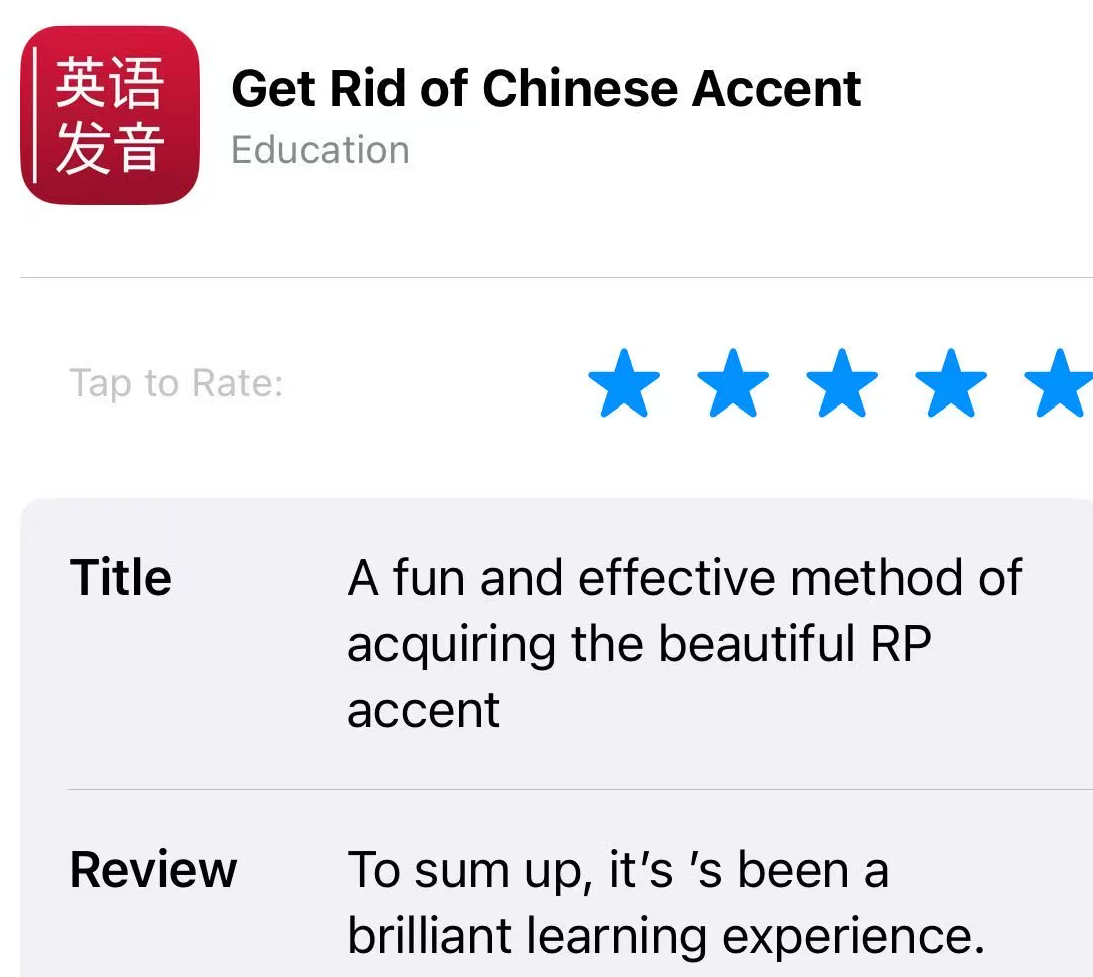This article will help you choose the best apps to master Received Pronunciation, clear articulation, expressive voice modulation, and the strategic use of pauses. These core speaking skills are essential for public speakers and professionals who use English as a second language and want to sound confident, polished, and persuasive.
All the apps featured share powerful, user-friendly functionality. You can listen to expertly recorded audio by professional actors, record your own voice, and instantly compare your pronunciation with the model, making progress measurable and motivating.
British English:
Elocution Lessons. This app is ideal for children and people who have just started learning English. This app has 48 lessons. It contains short, commonly used phrases, sentences and verses that are easy to repeat, and it also has useful tips for teachers of English. It is actually useful for everyone as it contains essential, everyday English.
Get Rid of your Accent. This app is ideal if you want to get rid of a regional or foreign accent and to speak with Standard English or RP (Received Pronunciation). It has 42 lessons; it contains effective practical exercises to perfect all English sounds and perfect your articulation.
Fluent English Speech. This app is a follow-up to the Get Rid of your Accent app. It is ideal if you want to develop fluency in English and sound more like a native English speaker. It contains exercises for difficult and connected speech patterns, natural flow of speech, intonation, sentence stress and onomatopoeia.
Business English Speech. This app was designed for top-level professionals, diplomats and lawyers. It is the only app on the market that has both English pronunciation and business vocabulary training. It contains 43 lessons with material gathered from interviews with CEOs, CFOs and MDs of global companies and helps to develop proficiency in English.
4Ps, Power, Pitch, Pace, Pause. This app is ideal if you want to get rid of monotonous speech and become a successful presenter and public speaker. It contains practical exercises for voice modulation and the use of pauses.
Get rid of Chinese Accent. This app is the same as the app Get Rid of your Accent, with an additional bonus - Chinese translations.
Get Rid of Russian Accent. This app is the same as the app Get Rid of your Accent, with an additional bonus - Russian translations.
General American English:
American Accent App. This app is ideal if you want to get rid of a foreign or regional accent and master the Standard American accent. It has 42 lessons. It contains effective, practical exercises to perfect all American English sounds.
Fluent American Speech. This app is a follow-up to the American Accent App. It is ideal to develop fluency in your American English speech. It contains exercises for difficult and connected speech patterns, natural flow of speech, intonation and sentence stress
More on www.batcsglobal.com


